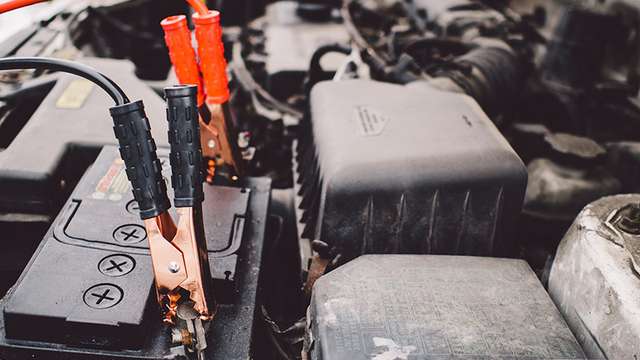- car maintenance
What problems occur if a car isn't driven for a long time

Updated 25 Mar 2021
Scott Kemp

When we all welcomed the new decade in at midnight on January 1st 2020, no one expected this year would've gone quite the way it did.
The COVID-19 Pandemic forced nearly everyone to adopt new ways of going about their day to day lives, whilst many were faced with complete lockdowns for months on end.
But now, ten months into the year, things are starting to return to normal. The majority of Australia is free of lockdown, and our Melbourne friends are slowly recovering from their second wave, with restrictions being eased on October 18th.
With this new-found freedom (which we all didn't appreciate enough 12 months ago), I'm sure many of you are absolutely rearing to go! You can't wait to hit the road and look at something other than the walls inside your homes, but there's something to consider before you jump in your car and jet off into the sunset.
Throughout these periods of little movement, our four-wheeled friends have been sitting idle in our garages or driveways, some for weeks and others for months.
Cars are built to be cars, not expensive home decor, so unsurprisingly, they don't really like sitting in one place for too long.
Before you commit to a road trip (or a 25km tour of your city - sorry Melbourne), you really need to give your car a once over to see if it's got any of the below issues that can occur if your car hasn't been driven for ages!
- Flat battery - If you haven't started and run your car for a decent amount of time you may find you have a flat battery. Depending on the age of the battery, a simple jump-start might not work, and you may need to replace it.
- Noisy brakes - If you start to drive your car and you hear a grinding noise when braking, it could be a build-up of rust on your brake rotors. This can be dangerous, so it’s best to get it checked out as soon as you can.
- Low tyre pressures - For extended periods where your car hasn’t been driven, you might find you have lost some of your tyre pressure. If it's safe to do so, get to a service station and pump those tyres up! The recommended PSI (tyre pressure) for the tyres on your car should be in your owners manual.
- Pre-existing issues - If you had any pre-existing issues before the lockdown, such as an oil or coolant leak, these issues are likely to have continued and may have become worse whilst you haven't been checking for them. Make sure you check your oil, coolant, brake, clutch, power steering and transmission (if possible) fluids before starting your vehicle.
- New issues - Your car may have developed a range of new issues while it has been sitting around, this is why it is important to check all of your levels and do a visual check of the vehicle. When you start the vehicle make sure you check for any lights on the dash that may come up, let the vehicle idle for a minute or two and do a quick visual check of the engine bay and underneath the vehicle to make sure there are no leaks and everything is doing what it should.
If the car is not quite running properly or you notice any issues, get it checked out straight away by your local mechanic.
In the event your car doesn't feel safe, or doesn't start at all, you can organise for a mobile mechanic to come to you. It's better to be safe than sorry, the last you thing you want is for a disaster to happen when you're so close to freedom!

Written By
Scott Kemp
With over 15 years in the industry, Scott has worked in a variety of different roles with a variety of different manufacturers.
His journey started at 16 when he began his apprenticeship at a small workshop, from there he moved on to dealerships working as a Senior Mechanic, Service Advisor and Assistant manager. His most recent role was as workshop controller/2IC at a large multi vehicle franchise.